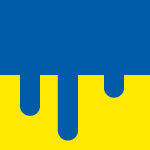05.12.2023 , in ((Towards a Novel Mobility Regime))
, ((Keine Kommentare))
Francisco Klauser
 During the COVID-19 pandemic, the act of breathing air became a central policy focus, tied to people’s ability to move. From wearing mandatory masks to navigating public spaces, the governance of breathing air became an essential part of the management of mobility. What will remain after COVID-19 from this increased
...
During the COVID-19 pandemic, the act of breathing air became a central policy focus, tied to people’s ability to move. From wearing mandatory masks to navigating public spaces, the governance of breathing air became an essential part of the management of mobility. What will remain after COVID-19 from this increased
...
+ Weiterlesen
16.11.2023 , in ((Towards a Novel Mobility Regime))
, ((Keine Kommentare))
Maurice Stierl
 As Covid-19 emerged globally, the pandemic was seized as an opportunity to experiment with forms of hygienic-sanitary containment and deterrence, often targeting vulnerable mobile populations. While the virus did not „respect“ borders, borders multiplied, both on land and at sea. Yet, despite varied attempts, the Mediterranean Sea could not be
...
As Covid-19 emerged globally, the pandemic was seized as an opportunity to experiment with forms of hygienic-sanitary containment and deterrence, often targeting vulnerable mobile populations. While the virus did not „respect“ borders, borders multiplied, both on land and at sea. Yet, despite varied attempts, the Mediterranean Sea could not be
...
+ Weiterlesen
14.11.2023 , in ((Towards a Novel Mobility Regime))
, ((Keine Kommentare))
Christin Achermann, Sélim Clerc, Janine Dahinden, Francisco Klauser und Eloise Thompson
 Following the outbreak of the COVID-19 pandemic in 2020, authorities deployed a myriad of „exceptional“ measures that severely impacted the possibilities of human movement. States restricted, controlled and monitored people on the move at various social and spatial scales. The emerging „regime of (im)mobility“ turned out to be highly differential and
...
Following the outbreak of the COVID-19 pandemic in 2020, authorities deployed a myriad of „exceptional“ measures that severely impacted the possibilities of human movement. States restricted, controlled and monitored people on the move at various social and spatial scales. The emerging „regime of (im)mobility“ turned out to be highly differential and
...
+ Weiterlesen
05.09.2023 , in ((Europe on the Brink))
, ((Keine Kommentare))
Gianni D’Amato
 Putin’s war in Ukraine, as well as in Sub-Saharan Africa and various operational theaters in the Middle East, has the potential to severely shake the consensus in Western societies. While the Ukrainian conflict underscores Russia’s imperialistic approach, Western societies remain divided over providing assistance to Ukraine and other theaters due
...
Putin’s war in Ukraine, as well as in Sub-Saharan Africa and various operational theaters in the Middle East, has the potential to severely shake the consensus in Western societies. While the Ukrainian conflict underscores Russia’s imperialistic approach, Western societies remain divided over providing assistance to Ukraine and other theaters due
...
+ Weiterlesen
21.03.2023 , in ((COVID-19 + Mobility))
, ((Keine Kommentare))
Yossra Kallali und Silindile Nanzile Mlilo
 During the COVID-19 pandemic, governments struggled to respond quickly and efficiently to a changing epidemiological context. To handle crises better, key populations, such as migrants, should be involved in the prevention and intervention strategies. Research on vaccine rollouts in Ethiopia, Tunisia, and South Africa found that civil society groups were
...
During the COVID-19 pandemic, governments struggled to respond quickly and efficiently to a changing epidemiological context. To handle crises better, key populations, such as migrants, should be involved in the prevention and intervention strategies. Research on vaccine rollouts in Ethiopia, Tunisia, and South Africa found that civil society groups were
...
+ Weiterlesen
 During the COVID-19 pandemic, the act of breathing air became a central policy focus, tied to people’s ability to move. From wearing mandatory masks to navigating public spaces, the governance of breathing air became an essential part of the management of mobility. What will remain after COVID-19 from this increased
...
During the COVID-19 pandemic, the act of breathing air became a central policy focus, tied to people’s ability to move. From wearing mandatory masks to navigating public spaces, the governance of breathing air became an essential part of the management of mobility. What will remain after COVID-19 from this increased
...


 During the COVID-19 pandemic, governments struggled to respond quickly and efficiently to a changing epidemiological context. To handle crises better, key populations, such as migrants, should be involved in the prevention and intervention strategies. Research on vaccine rollouts in Ethiopia, Tunisia, and South Africa found that civil society groups were
...
During the COVID-19 pandemic, governments struggled to respond quickly and efficiently to a changing epidemiological context. To handle crises better, key populations, such as migrants, should be involved in the prevention and intervention strategies. Research on vaccine rollouts in Ethiopia, Tunisia, and South Africa found that civil society groups were
...